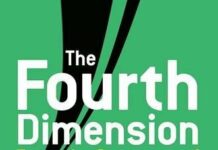
Ebook Info
- Published: 2013
- Number of pages: 337 pages
- Format: PDF
- File Size: 4.08 MB
- Authors: Rudy Rucker
Description
This reader-friendly volume groups the patterns of mathematics into five archetypes: numbers, space, logic, infinity, and information. Rudy Rucker presents an accessible introduction to each of these important areas, reflecting intelligence gathered from the frontiers of mathematical thought. More than 100 drawings illuminate explorations of digital versus analog processes, logic as a computing tool, communication as information transmission, and other “mind tools.””Mind Tools is an original and fascinating look at various aspects of mathematics that is sure to fascinate the nonmathematician.” — Isaac Asimov “A lighthearted romp through contemporary mathematics. . . . Mind Tools is a delight.” — San Francisco Chronicle”For those who gave up college mathematics for what seemed more liberal arts, Rudy Rucker’s book, Mind Tools, is a dazzling refresher course. . . . He rekindles the wonder that can come from contemplating logarithms, exponential curves and transcendental numbers.” — The New York Times Book Review”One of Rucker’s greatest assets is his ability to make complexities comprehensible to the general reader without lecturing.” — The Washington Post”Approaching all of mathematics, and everything else, by way of information theory, Dr. Rucker’s latest and most exciting book opens vistas of dazzling beauty — scenes that blend order with chaos, reality with fantasy, that startle you with their depths of impenetrable mystery.” — Martin Gardner
User’s Reviews
Reviews from Amazon users which were colected at the time this book was published on the website:
⭐I never loved math in school so sometimes this book seems difficult, but it clarifies the presence of mathematics in all things.
⭐All of Rucker’s works are beautiful, funny and useful — a master.
⭐I LIKE THE MATHEMATICAL BASED DESCRIPTIONS. GREAT CHAPTER ON GOEDEL AND TURING.
⭐five stars
⭐Thank you, Rudy.
⭐Rudy Rucker’s “Mind Tools” provides a very clear and step by step explanation of mathematical thought from basic concepts to their incorporation in computing. From the Introduction through the chapters the book covers the “five modes of thought” and proceeds accordingly. Namely, it addresses mathematics as (1) number, (2) space, (3) logic, (4) infinity and information.I first learned about this book as a reference given related to data driven organization design (see my review of Rupert Morrison’s book with this title), graph database approaches to organizational modeling and the importance of visualization in human deliberations. Rucker’s explanation certainly does help one better understand the foundations for such activities and other uses of computers and visualization (for example see my review of David J Staley’s “Computers, Visualization, and History”).Among my favorite parts included the author’s description of the analog and digital activities (right and left) aspects of the brain with the former providing the basis for recognizing and the latter manipulating the content of a scene in a photograph (page 9). Then, there is his discussion of the psychological roots of mathematical concepts including Carl Jung’s use of a tetrad or quarternity to examine brain processing and pattern (archetype) formation (pages 20-21). Figures with many simple number patterns (pages 52-62) offer ways of dealing with numbers. Rucker’s treatment of the different types of curves relates different means for working with space (e.g. see material on sine curves starting on page 142 or mention of life fractals like concept maps on page 180). The remarks on the limits of logic (such as on page 198) and the conceivability of patterns within information (page 300) are also revealing. Also, illuminating at different points and at the end of the book is the explanation of the mathematic foundation for computers and the ways graphical information are produced (for instance see page 307).While the book is well laid out and proceeds systematically, it does take some attention and perseverance to begin to put it all together. Nevertheless, “Mind Tools” is worth the effort to further grasp mathematical thought, the analysis, and visualization it makes possible as well as their usefulness in our lives.
Keywords
Free Download Mind Tools: The Five Levels of Mathematical Reality in PDF format
Mind Tools: The Five Levels of Mathematical Reality PDF Free Download
Download Mind Tools: The Five Levels of Mathematical Reality 2013 PDF Free
Mind Tools: The Five Levels of Mathematical Reality 2013 PDF Free Download
Download Mind Tools: The Five Levels of Mathematical Reality PDF
Free Download Ebook Mind Tools: The Five Levels of Mathematical Reality



